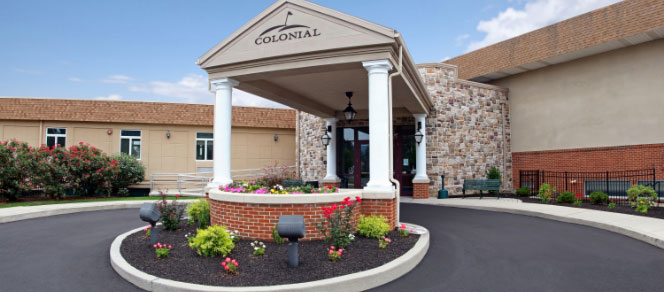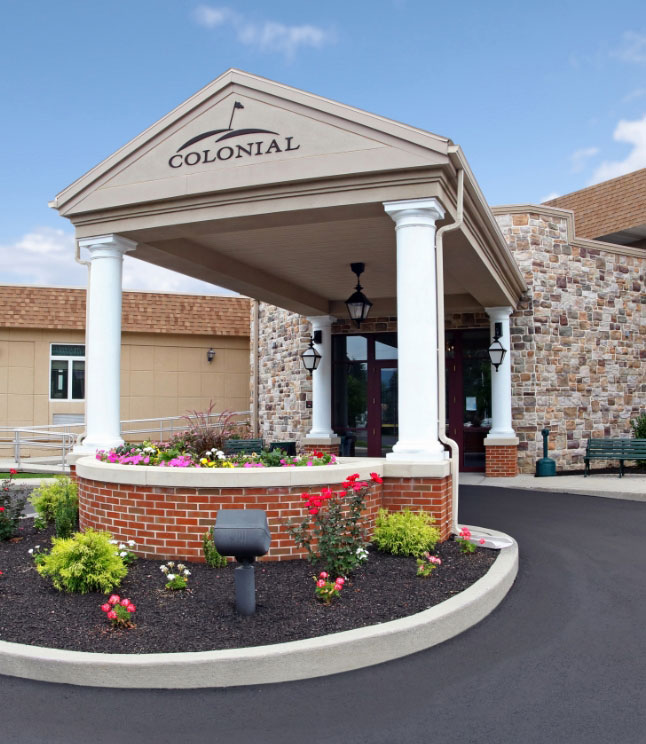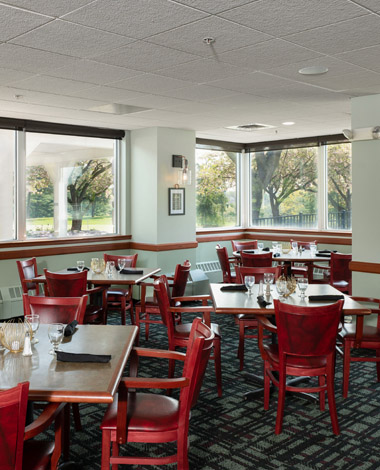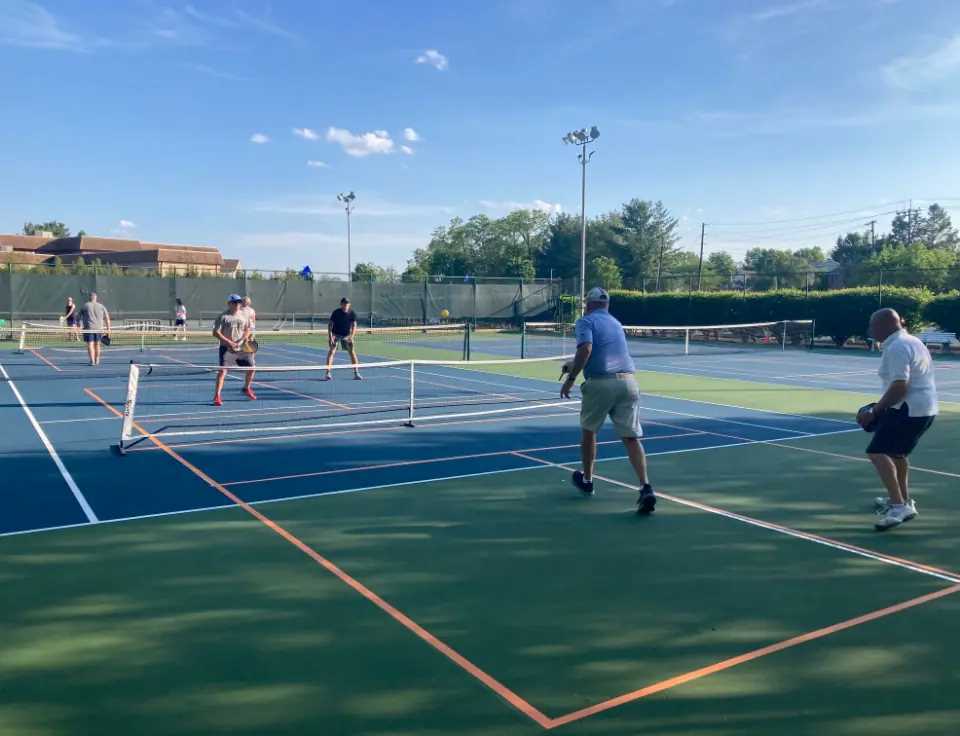How to Plan a Wedding
It’s finally here. You’ve found the love of your life, and you’re excited to share your vows to declare your love in front of your family and closest friends. Perhaps you have a clear idea of what you want for your wedding, or maybe you feel lost among wedding industry lingo. No matter the case, after the excitement of engagement wears off, most people wonder how long it takes to plan a wedding and what is involved.
Book Your Wedding
Wedding planning takes time, attention to detail and communication so your day can be exactly how you imagined it. With some insider tips on the steps of planning a wedding, you can feel confident and prepared when thinking about your big day. This step-by-step guide is designed to help you every step of the way. From sticking to a timeline and budget to choosing your wedding party and writing your vows, you and your love will be ready to say “I do” in no time.
BEFORE YOU START
Planning your wedding is like shopping for your dream house. You likely already have specific, nonnegotiable features in mind. However, there’s a lot to do before you get carried away with inspiration. Staying on top of the finer details means taking your time with every step, so nothing falls through the cracks. The foundation for a foolproof wedding plan is communicating with your partner and setting important boundaries that will help with your decision-making later on.
Check out these pre-planning steps for success:
1. TALK TO YOUR PARTNER
Your special day is about you and your partner. The choices you make are going to affect both of you, as well as represent your image as a couple. Together, you need to decide how big you want your wedding to be, the budget and the number of people in the wedding party.
With all your closest friends and family giving their input and wanting to be involved, a wedding may come with many expectations. To make the day as smooth and joyous as possible, you and your partner need to talk about what decisions are nonnegotiable and necessary. As long as you and your love are on the same page, planning your wedding can be easier than you imagined.
2. SET A BUDGET
The wedding industry is one of the largest in the nation. The word “wedding” can add hundreds of dollars onto the price tag for entertainment, food, attire and transportation. That’s why the most important part of planning a wedding is setting a budget and sticking to it. Of course, you can leave some wiggle room because the nonnegotiable things like the venue or dress may add up to a higher cost than you anticipated. Whether you have $100,000 to spend or $5,000, there are ways to set and manage your budget so you can have peace of mind.
3. DETERMINE YOUR WEDDING STYLE
Planning the aesthetic of your wedding involves more than color schemes and seasons. You want your wedding to be unique and special, and your wedding style is a huge part of that. Are you a classic duo who loves candlelight, refined food and sophisticated decor? Or are you a free-spirited bohemian couple who loves natural floral elements, fringe and family-style dining?
Finding your wedding style can help you choose your venue, wedding party dresses and suits, decorations, guest favors and flower arrangements. Looking through wedding magazines and online inspiration can help you determine your wedding style.
READY, SET, PLAN
Once you’ve set your budget and boundaries, you’re ready to start following the steps of planning a wedding for the big day. There’s a lot to do, and organization is key for sticking to deadlines and keeping up with everyday life. The following are some tasks you’ll want to accomplish:
1. CREATE A MASTER CHECKLIST
A master checklist comes in many forms. A traditional binder, computerized spreadsheet and handwritten legal pad list are all efficient ways to stay on top of your timeline and tasks. Whichever way you choose to track your progress and checklists, make sure you’re updating the list daily and following through with each project.
There are also apps available that can act as your personal wedding assistant. Tools like these can help set your deadlines and send important notification reminders to keep you accountable. You can also create your own master checklist on a spreadsheet if you prefer even greater organization.
2. MAKE A GUEST LIST
Who are the most important people you want to share your day with? Making your guest list may sound like the easiest part of planning your big day, but it can prove to be one of the more difficult tasks. Your budget and venue will determine how many people you can invite. If your parents have requests about people they want to invite, you may have to make another compromise or set some boundaries.
The guest list should have at least three drafts. The first draft is usually made up of you and your partner’s friend lists and family trees. The second draft will add the people you may have left out. This draft can also include removing people who may not be able to attend. The third draft is the nearly finalized copy. By the time you create it, you will know who won’t be able to make it for the date.
Read: How to Choose a Wedding Catering Service
Any variation after the third draft typically comes after the invitations have been sent out and people have returned their RSVPs.
3. CHOOSE YOUR WEDDING PARTY
The wedding party is made up of the people you can’t imagine this day without. They are your best friends, siblings and closest connections. All these people hold a special place in your heart, and they’re all just as excited to share your day with you. The people in your wedding party will be your support system throughout the whole wedding process. They are there to help you make decisions and overcome any hiccups.
If you’re planning a smaller wedding or don’t want to make the tough decision of who to include in your wedding party, you have the option of not having one at all. Remember, this day is about what you and your partner want. If you prefer to stand at the alter with only your love, you are welcome to do so.
4. CHOOSE A VENUE
Perhaps the most classic wedding venue is a beautiful cathedral or church. However, times have changed, and wedding venues come in all shapes, sizes and forms. Today, anywhere can be a wedding venue if it suits you and your partner’s theme and tastes.
Your wedding venue plays a huge role in:
Setting your date.
Creating your guest list.
Planning the menu.
Adding decorations.
Choosing your wedding party outfits.
Before you can plan most other details, you have to choose your venue. Do you want an outdoor wedding on a beautifully manicured golf course or tropical beach? Or do you see yourself walking down the aisle of a country lodge or airplane hanger? The location, capacity, availability, layout, price, restrictions and facilities will all play a role in choosing your picture-perfect venue.
5. VENDORS AND CONTRACTS
Unless you plan to DIY most of your wedding, you’re going to have to work with one or more vendors to help create your special day. If you can’t imagine your day without a certain local DJ or photographer, you’ll have to act fast to secure your contracts with them. Remember to always read the fine print and ask for revisions and compromises where you need adjustments.
Consider these two high-priority decisions:
Entertainment: About 72% of brides said they wish they had taken more time to choose their reception entertainment. Whether you want a DJ or a band, the musical entertainment you choose for your reception will play an enormous role in setting the tone and getting the party going. The entertainment is the emcee for the night, so you’re trusting them to get your guests up on the dance floor to celebrate with you.
Food and catering: If you want to save time in your master checklist, you can work with a venue that takes care of the catering for you, like Colonial Golf and Tennis Club. It will be one less thing for you to stress about while still ensuring you get the quality and taste you desire.
6. TO DRINK OR NOT TO DRINK?
The answer to this question may be a simple yes or no. However, many couples have differing opinions when it comes to having an open bar or any alcoholic beverages at all. The decision all comes down to personal preference. Some religious traditions preclude alcohol consumption, so the choice is obvious. Whether you want to create your own special cocktails or limit the serving time, there is an option available for every budget.
7. PLAN YOUR PRE-WEDDING EVENTS
In the hustle and bustle of planning a wedding, you can’t forget to make time for all the other special events that go along with the celebration. Of course, you’re not obligated to host every occasion. Traditionally a couple will mark the beginning of their engagement with an engagement party or dinner. This allows them to celebrate with their inner circle as they start their journey towards married life.
There are also optional bridal or groom showers, where the bride or groom is given gifts in preparation for the upcoming wedding. And you can’t leave out the milestone bachelor and bachelorette parties. Even if you don’t want to partake in a wild party night, you can host a tasteful and intimate dinner with your friends to celebrate your last days as a single individual.
8. BUILD A REGISTRY
Planning a wedding goes hand in hand with receiving gifts. With today’s technology and trends, your registry can come in many forms. If this is your first time getting married and living with your spouse, a gift registry helps your guests furnish your home. You also have the option of a honeymoon registry, where guests can pay for your vacation expenses like a dinner for two or couples massage. Registering for gifts is one of the most exciting parts of getting married. It keeps your guests from wondering what to get you and commemorates the occasion.
9. HIRE AN OFFICIANT
Finding the right person to legalize your wedding vows can be a deeply personal experience. Whoever you choose will have to get to know you and your partner intimately so they can speak to the strength of your relationship. Your officiant will set the tone for the ceremony. If booking a justice of the peace or clergy member is aligned with your vision, you’ll have to thoroughly research your options. You can also ask a close family member or friend to usher you into your new shared life.
Read: The Ultimate Guide to Micro Weddings
10. FIND YOUR DREAM DRESS AND TUX
One of the highlights of the entire day is seeing your partner in their wedding clothes. Whether the bride is donning vintage lace or shining in rhinestones and embroidered silk, the dress will hold a special place in her heart forever.
A groom’s tux no longer just comes in white, light blue, black, or grey. Suits are made in every cut and color today, which makes choosing the perfect silhouette and shade that much more fun. There is always the added excitement of spending the day with your closest friends searching for that perfect attire. Shopping for your dress or tux early on in the wedding planning process ensures you have plenty of time for tailoring and customizations. The same goes for your wedding party.
11. GET YOUR MARRIAGE LICENSE
This is one of those smaller details that can easily slip through the cracks when you’re busy looking at the bigger picture. Unfortunately, getting married is not as easy as being declared married on the actual day. Depending on where you live, it can take a few weeks to apply for and attain a marriage license. So don’t forget to do your research — this website can get you started — and take the legal steps towards officially becoming partners for life.
12. WRITE YOUR VOWS
If you’re not the best at expressing your feelings or never got the hang of writing down your thoughts, this step can seem daunting. Many couples prefer the traditional vows that promise commitment and comfort through thick and thin. If you want to personalize your vows, you don’t want to wait until the last minute in hopes that inspiration will strike.
With each milestone of the wedding planning process, take a few minutes to reflect on how far you and your partner have come as individuals and as a couple. After dating and relationship growth, you have finally come to a point where you are ready to become one unit in love and life. It’s a beautiful time, and writing your vows allows you to appreciate it apart from the busyness of planning.
If you don’t like the idea of sharing vows in the presence of your family and friends, you can set time aside before or after the wedding to share love letters to one another. If you ask your photographer to be there, it will make for an unforgettable moment you both can treasure for years to come.
13. TAKE TIME OFF
The most important piece of advice is to take time off from planning to simply enjoy one another’s company. You will have emails, notifications, text messages, appointments and task lists that will demand your attention and time. Don’t forget that the reason you’re planning a wedding is so you can take this next step forward, hand in hand with the love of your life. Cherish every minute of it by having fun, spending quality time with your partner and taking a break from your busy schedule.
HOW TO PLAN A SMALL WEDDING
Not everyone dreams of having a big wedding, and that’s okay! The thing about a wedding is that it is your day. That means whatever you want or envision is what the day should be as long as your partner agrees. Many couples love the attention that a large wedding brings. But you may prefer a more intimate gathering that offers exclusivity and greater personalization while staying within an ideal budget. These tips can help you create the perfect private affair:
1. MATCH YOUR GUEST LIST TO THE VENUE
Every venue will have a limitation on how many guests you can host on your wedding day. This may not seem like a concern when planning a small wedding, but smaller venues offer limited capacity, and you may need to cut down your guest list. If you are having trouble meeting an occupancy rate, start with listing the people you would ask to be in your wedding party. This ensures your closest friends will be included, along with your immediate relatives.
2. TAKE ADVANTAGE OF ACCOMMODATIONS
Hosting a small wedding offers the benefit of using the venue’s accommodations to your advantage. Along with access to special amenities, you can reach out to local hotels and venues that have rooms so your special day becomes a weekend event. You can still save money while sharing the entire experience with a select group of guests.
3. GET CREATIVE
From the entertainment to the menu, a small wedding can be a completely different experience. Get personal with your guests by changing up the traditional seating arrangements with an estate or U-shaped table. Add unique touches with customized place settings and decorations. Make time with each of your guests by planning games or activities that will get everyone moving and laughing. Let your personality shine through.
Learn More























